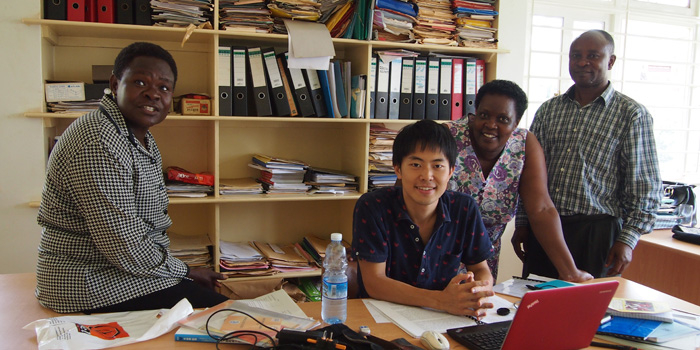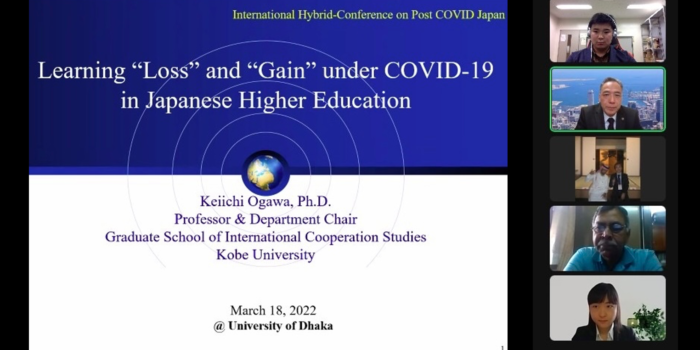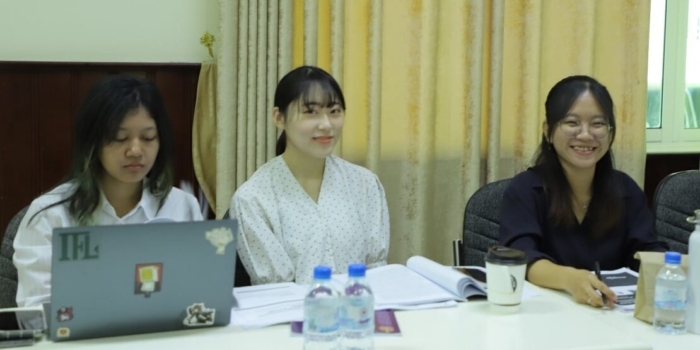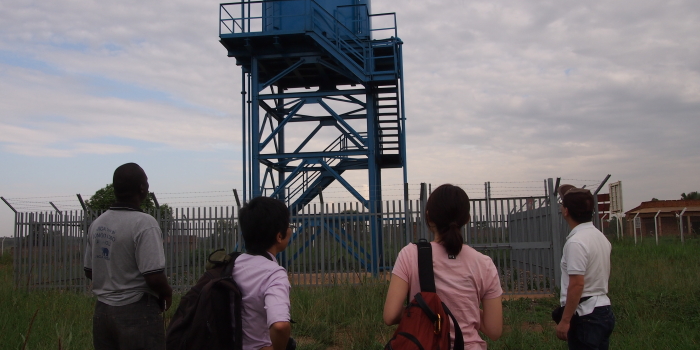This is a summary report of my one and half month’s internship in the Ministry of Education and Sports in Uganda. The internship period was from August 26th to October 6th in 2014, and I was initially attached to the Statistics, Monitoring and Evaluation (SME) division under the Education Planning and Policy Analysis (EPPA) Department. After two weeks I was re-deployed to the Directorate of Education Standards (DES).
During the internship, I carried out four activities related to theme of my academic research; “Teacher Absenteeism in Primary Schools of Uganda.” The first activity I conducted was that of collecting secondary data on teacher absenteeism from the Education Management Information System (EMIS) data base, as well as reviewing Uganda’s education policy reports, including school inspection guidelines prepared by DES. The inspection guidelines helped me understand the mechanisms through which the MoES carries out school monitoring and inspection.
Secondly, I exchanged opinions with MoES education policy makers and practitioners from several international organizations. I discussed teacher absenteeism and other educational issues with officers from MoES, Uganda National Teachers’ Union (UNATU) and International Development Agencies, such as UNICEF, World Bank. Specifically, I talked with four commissioners in MoES, a project assistant of UNICEF, a senior education specialist from World Bank country office in Uganda, and a commissioner of UNATU. All the officers I met regarded teacher absenteeism as an important issue, and they gave me their opinions about causes and possible solutions.
 Thirdly, I attended two education conferences, namely; meeting of sub component in Global Partnership for Education (GPE) Project, mainly managed by MoES, World Bank, and UNICEF; and the 2013/2014 annual Education and Sports Sector Review (ESSR), which brings together private and public education stakeholders in Uganda.
Thirdly, I attended two education conferences, namely; meeting of sub component in Global Partnership for Education (GPE) Project, mainly managed by MoES, World Bank, and UNICEF; and the 2013/2014 annual Education and Sports Sector Review (ESSR), which brings together private and public education stakeholders in Uganda.
I attended a meeting on ICT sub component of Global Partnership for Education (GPE) project. During the meeting, I participated in a discussion about introducing a new system to monitor teachers’ attendance, and fortunately I was granted access to the database of the new system. The annual Education and Sports Sector Review (ESSR) 2013/2014 was held in September from 24th to 26th, 2014. I was able to observe how the conference participants discussed issues related to education development in Uganda, and understand where my own research topic places in the Ugandan education development agenda.
Fourthly, I took part in schools inspection activity organized and conducted by DES. We monitored 12 schools, including primary and secondary, in Wakiso district and Mukono district in central region. While in the field, I interviewed 70 teachers using semi-structured questionnaires. The interviews helped me get information about the causes of teacher absenteeism. In addition, I helped officers from DES to observe teachers’ and students’ attendance, and investigate the frequency of the class of each subject, and quality of classes.
 Though it was my first time to conduct internship in a developing country, I was able to achieve a lot of success in terms of collecting data and learning a lot through exchange of opinions with officers of MoES and other specialists in Uganda’s education. Moreover, this internship opportunity helped me build up connections with various kinds of people, and improve communication skills in English. This will be useful for me during the process of writing my master’s thesis. One of the key challenges I encountered was the fact that my research skills were not so good. I will endeavor to improve on my research skills in the course of my Masters Degree program in Kobe University’s Graduate School of International Cooperation Studies (GSICS).
Though it was my first time to conduct internship in a developing country, I was able to achieve a lot of success in terms of collecting data and learning a lot through exchange of opinions with officers of MoES and other specialists in Uganda’s education. Moreover, this internship opportunity helped me build up connections with various kinds of people, and improve communication skills in English. This will be useful for me during the process of writing my master’s thesis. One of the key challenges I encountered was the fact that my research skills were not so good. I will endeavor to improve on my research skills in the course of my Masters Degree program in Kobe University’s Graduate School of International Cooperation Studies (GSICS).
Lastly, I would like to express my appreciation to my academic advisor, Prof. Keiichi Ogawa, who offered me this precious opportunity. Also, I would like to extend my gratitude to Mr. Joseph Eilor, the Assistant Commissioner in the Education Planning and Policy Analysis Department of MoES, and all MoES officers who helped me in one way or the other during my stay in Uganda.
Takeru Numasawa
Master Student
Related


 Thirdly, I attended two education conferences, namely; meeting of sub component in Global Partnership for Education (GPE) Project, mainly managed by MoES, World Bank, and UNICEF; and the 2013/2014 annual Education and Sports Sector Review (ESSR), which brings together private and public education stakeholders in Uganda.
Thirdly, I attended two education conferences, namely; meeting of sub component in Global Partnership for Education (GPE) Project, mainly managed by MoES, World Bank, and UNICEF; and the 2013/2014 annual Education and Sports Sector Review (ESSR), which brings together private and public education stakeholders in Uganda. Though it was my first time to conduct internship in a developing country, I was able to achieve a lot of success in terms of collecting data and learning a lot through exchange of opinions with officers of MoES and other specialists in Uganda’s education. Moreover, this internship opportunity helped me build up connections with various kinds of people, and improve communication skills in English. This will be useful for me during the process of writing my master’s thesis. One of the key challenges I encountered was the fact that my research skills were not so good. I will endeavor to improve on my research skills in the course of my Masters Degree program in Kobe University’s Graduate School of International Cooperation Studies (GSICS).
Though it was my first time to conduct internship in a developing country, I was able to achieve a lot of success in terms of collecting data and learning a lot through exchange of opinions with officers of MoES and other specialists in Uganda’s education. Moreover, this internship opportunity helped me build up connections with various kinds of people, and improve communication skills in English. This will be useful for me during the process of writing my master’s thesis. One of the key challenges I encountered was the fact that my research skills were not so good. I will endeavor to improve on my research skills in the course of my Masters Degree program in Kobe University’s Graduate School of International Cooperation Studies (GSICS).



